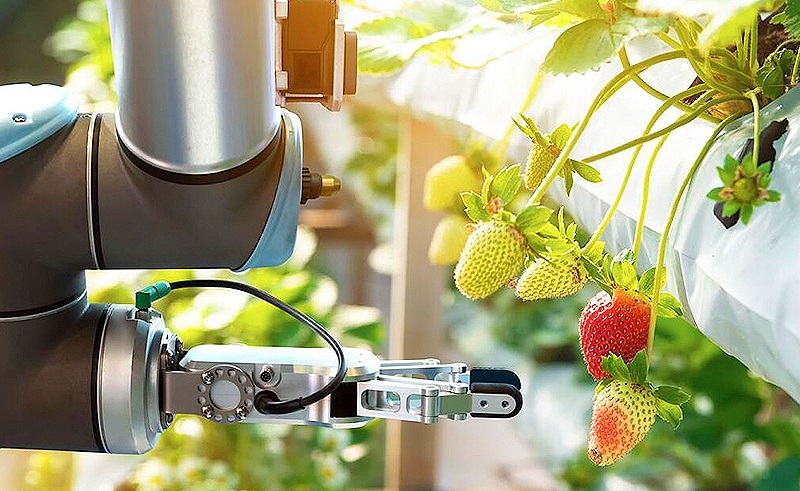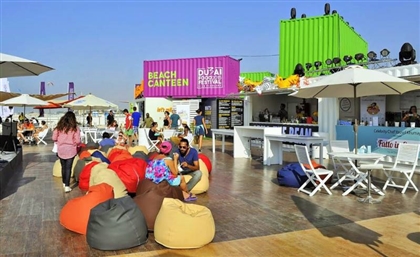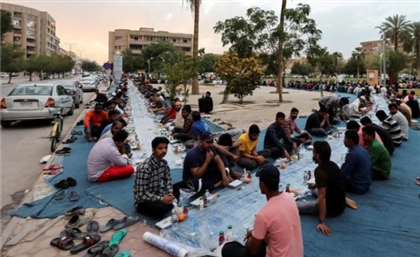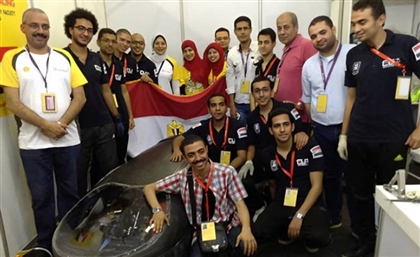The UAE's Rise as the Next Foodtech Hub of the Middle East
Staff writer May El Habachi speaks with some of the leading figures of the UAE's agritech industry to discuss the future of food - and the necessity of such tech to the future of the UAE.

With natural resources depleting at an unprecedented rate and shocking disruptions to supply chains brought about by the COVID-19 pandemic and, more recently, the Russian invasion of Ukraine, the UAE is investing heavily in agritech to drastically improve internal food security. The Abu Dhabi Investment Office (ADIO) is deploying no less than $100 million in agritech companies to support innovative solutions for farming.
As one of the hottest and driest climates in the world, the UAE is on course to run out of its natural freshwater resources in about 50 years, according to the World Bank. It is also one of the most import-dependent countries in the world, bringing in almost 90% of its food - making an investment in agritech synonymous with an investment in the nation’s self-sufficiency and food sovereignty.
TURNING THE TIDE
Madar Farms, a vertical farm in the UAE, is keen on making farming more self-sufficient to conserve the country’s dwindling natural resources. “More than 80% of water is used for agriculture and irrigation. That is terrifying, especially in our arid climate,” Abdulaziz Al Mulla, founder of Madar Farms, tells StartupScene. “Despite that, we are importing more than 90% of our food items. And even things that we are self-sufficient in, the inputs that go into them are all imported.”
To combat this, the startup is growing fruits and vegetables vertically to use less land while enabling food to grow anywhere, especially in places without soil. Its facility is based in Abu Dhabi’s KIZAD, an industrial zone, where it can create a highly-controlled environment to grow its produce. “The concept of CEA, or Controlled Environment Agriculture, makes us control the entire environment, including temperature, CO2, O2, humidity levels and so forth,” explains Al Mulla. “By doing that, we give the plant exactly the environment it needs. Our plants actually grow faster and healthier as a result.”
The biggest advantage of using innovative farming methods is that, with the effects of climate change becoming more imminent, farmers can produce more food locally and reduce their reliance on global supply chains. Pure Harvest, another agritech startup that is playing a key role in supporting the UAE’s food sustainability efforts, uses smart greenhouses to grow food more intelligently, and in an environmentally friendly way.
“Over the past two-plus years, due to the pandemic, the need for our solutions has become more apparent as we have all experienced significant disruptions to the global food production and supply chains, together with an increasing global focus on de-carbonization,” says Sky Kurtz, co-founder and CEO of Pure Harvest. “We are driven to reduce the world’s dependence on carbon-riddled supply chains and a few massive food-exporting nations, such as China and the USA. We instead provide food security and food sovereignty to those who wish to develop their incumbent farming industries, deploying large-scale, high-tech, resource-efficient food production systems to enable year-round production right within their own borders.”
Pure Harvest’s smart tech greenhouse removes heat and humidity from the air, and converts humidity to water to grow fruits and vegetables hydroponically, in nutrient-dense solutions without soil. The plants are also constantly monitored by sensors to measure all aspects of their health. This method of farming conserves less water and helps increase food production in a controlled environment.
COSTS OF INNOVATION
It is clear that innovation in agriculture is critical in reducing import dependency and meeting the country’s growing demand for food. According to the Food and Agriculture Organization (FOA) of the United Nations, the global food import bill is projected to rise by $51 billion from 2021; of that number, $49 billion reflects higher prices. But like higher import bills, innovation also comes at a cost. “We are definitely producing fruits and vegetables more intelligently and with superior quality to what is available in the market due to the utilisation of new agricultural technologies,” says Omar Al Jundi, founder of Badia Farms, another vertical farm in the UAE. “Considering the high capital expenditure and high operating expenses of running a modern-day vertical farm, our cost of production is higher, but as we continue to optimise our operation and increase production yields, our pricing will become more competitive.”
Zeid Sinokrot, founder of Palmear, a platform that uses AI to detect pests in agriculture, believes that such challenges are inevitable, particularly since agritech is still young in the UAE. As the sector continues to evolve, so will the supply chain of indoor farming. “The UAE is doing something very smart; it is initiating conversations around water scarcity and it is supporting a lot of projects related to indoor farming to produce fruits and vegetables locally,” says Sinokrot. “But there are problems with variety. By producing the same vegetables, it pushes prices down, and results in dumping of produce. An indoor farm is capital intensive, and it is selling low-cost products. There is disparity in this issue. I believe at some point this will be resolved, especially as technology progresses, but in the meantime, we need to look at it as a complete supply chain.”
GROWING APPETITE FOR TECHNOLOGY
Regardless, the country’s appetite for innovation and technology enabled solutions is growing. The key is to create innovation where it counts the most to further transform farming in the country. One way to do that is to make existing farming practices more efficient. According to Sinokrot, technology-enabled solutions should be used to help increase production while causing minimal disruption to farming. Palmear does this by using AI and acoustics to detect pests living in trees. By detecting these pests early, it is able to save the tree, safeguard the produce and secure the livelihood of farmers, all while reducing pesticide consumption. “Systems need to be put in place to produce more yields with less inputs,” Sinokrot says. “For example, today’s farmers are used to broadly spraying pesticides. By using sensors, they will be able to only target and localise the infested trees. This is only made possible with the adoption of technologies that enable precision agriculture.”
Innovative initiatives like these are accelerating digitisation of agriculture in the UAE at lighting speed. The world’s largest vertical farm, Crop One’s ECO 1, recently opened in Dubai in July 2022 with the capacity to produce over two million pounds of leafy greens annually. Dubai also recently launched the Food Tech Valley, which consists of laboratories, research centres and a storage facility to boost internal food security in the country. Perhaps the boldest initiative yet is the UAE’s venture into space agriculture. In 2021, US firm Nanoracks - which specialises in small payloads such as mini and cube satellites - established a commercial space research, StarLab Oasis, in Abu Dhabi with support from ADIO, to look into ways to produce food on Mars as well as in other challenging climates, like the Emirates. All these technological innovations, while necessary for accelerating agritech, risk making traditional farming obsolete, and further affect the livelihood of farmers.
Al Mulla from Madar Farms doesn’t seem to think so, however. He sees a future where innovation can work together with farmers to enhance agriculture in the country. “There are machines and robots that can automate every single portion of cultivation,” he says. “But is it cost-efficient? Is it cost-effective? Does it make sense? I think these are questions that should be looked at and sometimes they’re not. Sometimes, the whole aspect of having automation lures people’s eyes, and they go towards the most automated function. If you’re in field agriculture, automation doesn’t always make sense. If you take a big step back and look at the whole agricultural industry, yes automation is going to continue to make inroads, automation will continue to increase, but it will never take over completely.”
























